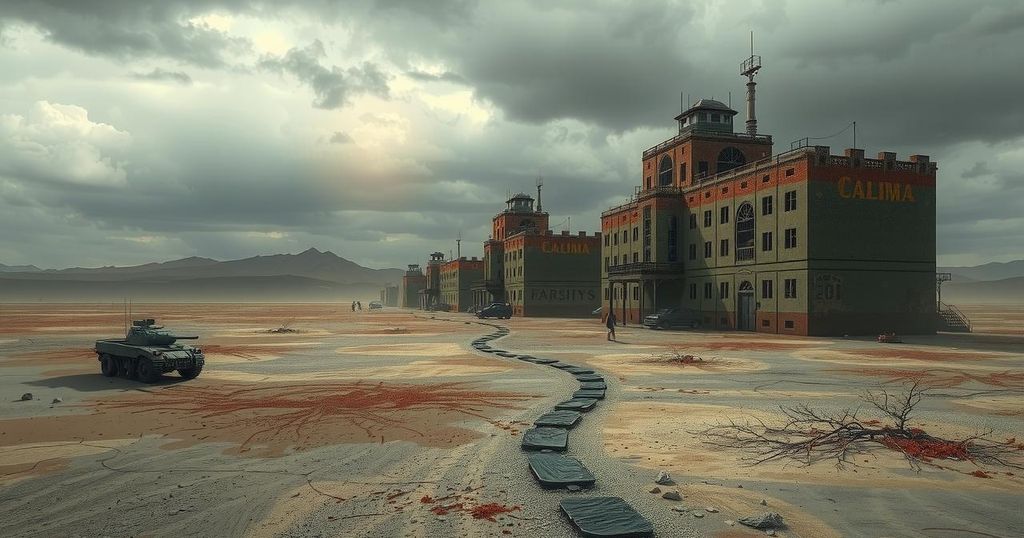Israel is intensifying military actions in Gaza, cutting electricity and disrupting vital services in the region, amid concerns regarding hostages. International parties, including the U.S. and Oman, condemn the humanitarian crisis and seek resolutions. Further complicating matters are new Israeli settlements and ongoing skirmishes with Hezbollah in Lebanon, reflecting the broader Middle Eastern instability.
The ongoing conflict between Israel and Hamas has escalated, with Israel preparing to enter Gaza amid reports of electricity cuts affecting vital services. Israeli Energy Minister has confirmed the termination of power to the Gaza Strip, just as military operations intensify. The ramifications include halted water supply operations, notably at water stations crucial for civilian needs. Plans are purportedly under consideration by Israel to create a migration directive, potentially linked to U.S. interests in forcibly relocating Palestinians from Gaza.
Israeli officials acknowledge the precarious status of hostages taken during the conflict, admiring General Eyal Zamir’s appointment of General Effie Defrin as the new IDF spokesperson. Voices within Israel are urging Prime Minister Netanyahu to adhere strictly to ceasefire agreements, prioritizing the retrieval of captured individuals. Concurrently, Israeli settlements in the West Bank and Gaza remain contentious, with individuals like Daniella Weiss publicly calling for drastic actions towards Palestinian territories.
International officials, including Oman’s Grand Mufti Ahmed bin Hamad al-Khalili and representatives from the United States, France, and Germany, have condemned Israel’s operations, highlighting the dire humanitarian conditions in Gaza. The Houthis in Yemen have issued warnings that they might resume naval operations if humanitarian aid is not facilitated. In Cairo, Hamas has expressed preconditions for engaging in discussions regarding a steadfast ceasefire and has indicated a willingness to extend a precarious truce for additional months in exchange for hostages.
Hamas asserts that the Palestinian populace must retain sovereignty over their lands without external imposition. Concerns extend beyond immediate territories, with implications perceived across the Middle East affecting nations like Egypt and Saudi Arabia. The rising tensions are also exacerbated by Hezbollah’s rebuttal of claims of its involvement in Syria’s violence, reiterating commitment to ceasefire terms with Israel.
Military assessments point to heightened alerts along the Syrian border, anticipating potential threats from Hezbollah. Reports indicate Israeli Defense Forces conducted attacks targeting Hezbollah’s military installations in response to perceived threats. Furthermore, regional clashes in northern Lebanon reflect increased unrest, attributed to cross-border weapons trafficking.
Israeli military operations have remained prolific, conducting numerous drone strikes across southern Lebanon, resulting in multiple casualties. Simultaneously, the Israeli army prepares for renewed conflict in Gaza, prompting political leaders to voice concerns regarding potential ramifications for hostages. Settler activity in contested areas is reportedly escalating, with recent approvals for new settlements further complicating the delicate situation.
The situation in Gaza and surrounding regions remains tense, with Israel poised for further military action while cutting essential services such as electricity. International condemnation of the actions undertaken continues, highlighting humanitarian issues. As key stakeholders, including Hamas and the Houthis, negotiate terms for ceasefires and discuss the fate of hostages, the broader geopolitical landscape in the Middle East becomes increasingly precarious, reflecting ongoing territorial disputes and rising aggression across borders.
Original Source: www.agcnews.eu




